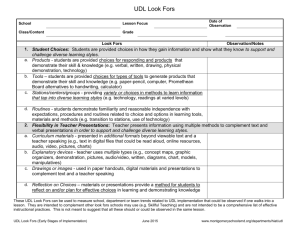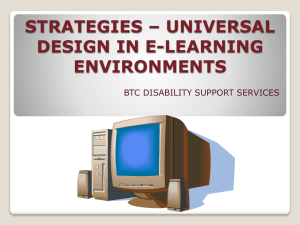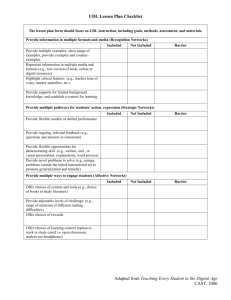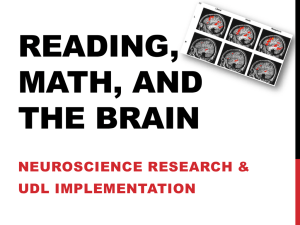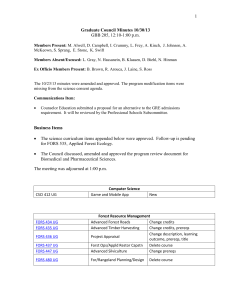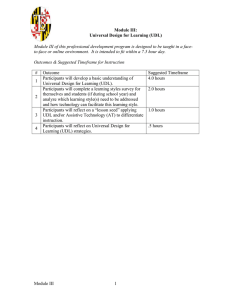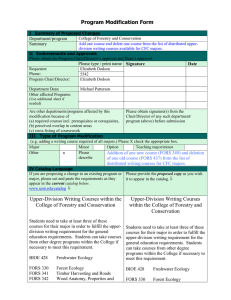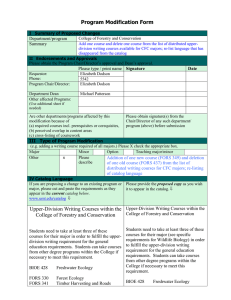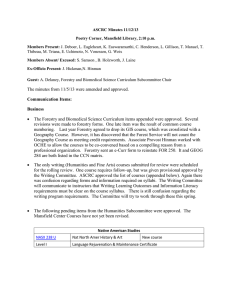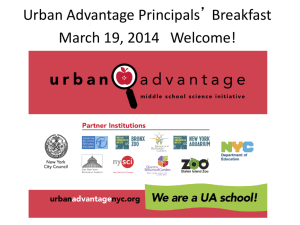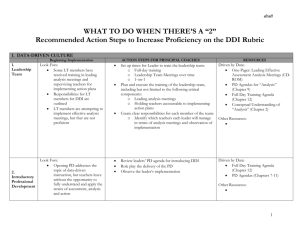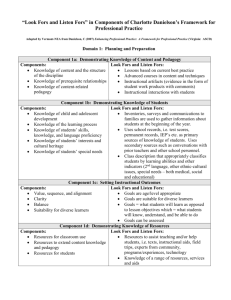UDL Classroom Observation Data Collection Form
advertisement
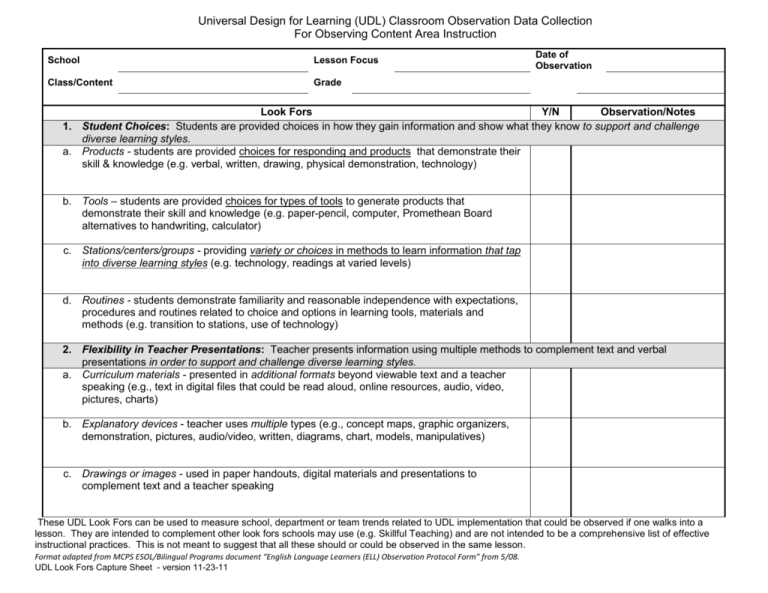
Universal Design for Learning (UDL) Classroom Observation Data Collection For Observing Content Area Instruction School Lesson Focus Class/Content Grade Date of Observation Look Fors Y/N Observation/Notes 1. Student Choices: Students are provided choices in how they gain information and show what they know to support and challenge diverse learning styles. a. Products - students are provided choices for responding and products that demonstrate their skill & knowledge (e.g. verbal, written, drawing, physical demonstration, technology) b. Tools – students are provided choices for types of tools to generate products that demonstrate their skill and knowledge (e.g. paper-pencil, computer, Promethean Board alternatives to handwriting, calculator) c. Stations/centers/groups - providing variety or choices in methods to learn information that tap into diverse learning styles (e.g. technology, readings at varied levels) d. Routines - students demonstrate familiarity and reasonable independence with expectations, procedures and routines related to choice and options in learning tools, materials and methods (e.g. transition to stations, use of technology) 2. Flexibility in Teacher Presentations: Teacher presents information using multiple methods to complement text and verbal presentations in order to support and challenge diverse learning styles. a. Curriculum materials - presented in additional formats beyond viewable text and a teacher speaking (e.g., text in digital files that could be read aloud, online resources, audio, video, pictures, charts) b. Explanatory devices - teacher uses multiple types (e.g., concept maps, graphic organizers, demonstration, pictures, audio/video, written, diagrams, chart, models, manipulatives) c. Drawings or images - used in paper handouts, digital materials and presentations to complement text and a teacher speaking These UDL Look Fors can be used to measure school, department or team trends related to UDL implementation that could be observed if one walks into a lesson. They are intended to complement other look fors schools may use (e.g. Skillful Teaching) and are not intended to be a comprehensive list of effective instructional practices. This is not meant to suggest that all these should or could be observed in the same lesson. Format adapted from MCPS ESOL/Bilingual Programs document “English Language Learners (ELL) Observation Protocol Form” from 5/08. UDL Look Fors Capture Sheet - version 11-23-11
